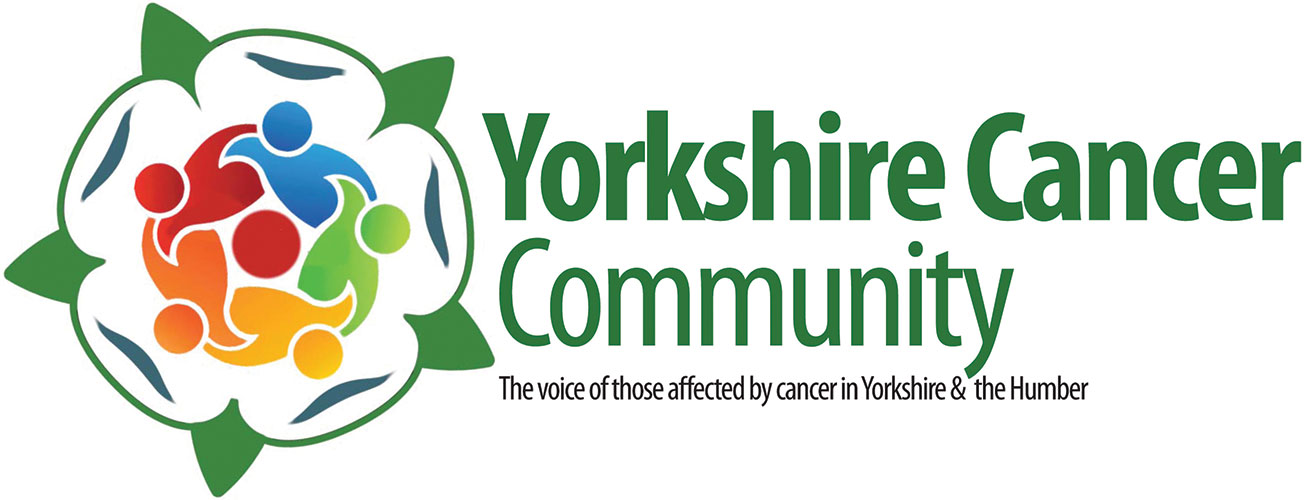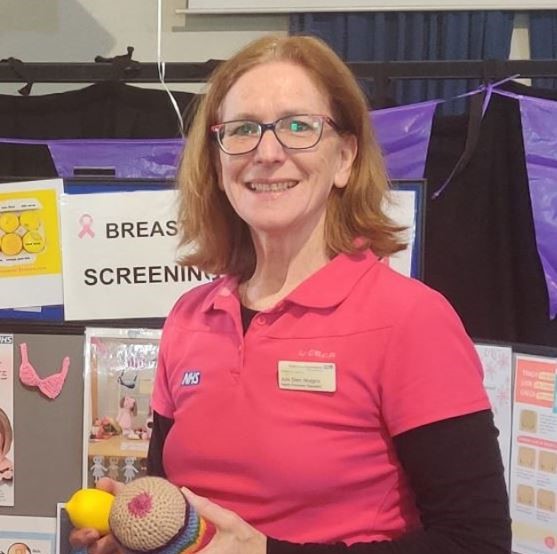If you have ever joined a Bradford and Pennine Breast Screening awareness talk, you cannot help but be inspired by presenter Julie Stein Hodgins.
Down to earth and approachable, Julie talks to hundreds of women each year, and a fair few men, not only about breast screening but also the importance of early detection.
In her pink polo shirt, and a ‘knitted knocker’ and a lemon in her hands, Julie helps her audience to understand about breast and chest checks, learning to “know your normal”. So, when they feel something that feels different; it’s unusual and ongoing, they get themselves checked out by their doctor.
When Julie discovered her own health issue, she wanted to practice what she preaches and emphasise the importance of early detection. In summer last year, Julie who often works alongside Cancer SMART volunteers, was at a group in Keighley talking about ‘dangly bits’ and encouraging the ladies to check out their breasts, under the arms and up to the collarbone. This particular session involved ‘tapping’ the body as part of a sensory awareness experience, and Julie felt a lump on the top left corner of her stomach.
It didn’t feel normal or usual, and after a sleepless night, Julie, who lives in Hebden Bridge, sent an email ‘Patches’ inquiry to her GP requesting an urgent appointment. By the afternoon, she was being examined by an advanced nurse practitioner, who couldn’t feel a lump, but did refer her for an ultrasound scan.
Two weeks later, the scan revealed a slightly enlarged spleen. Despite this, Julie said she felt fine, but a blood test showed low platelets. Another blood test a month later revealed much lower platelets and Julie expected to be fast tracked for an urgent cancer referral.
When this didn’t materialise, Julie decided to pay for a private consultation with a haematologist who organised a CT scan, bone marrow biopsy and endoscopy.
The consultant diagnosed low-grade lymphoma and a very enlarged spleen. Reflecting back, Julie thinks she may have missed earlier signs which could have been the return of mild night sweats and hot flushes, something she had not experienced following the end of menopause.
Initially, Julie said she felt angry. She felt “why me?”, as she had a low BMI, ate healthily and didn’t drink much alcohol. But encouraged by her daughter-in-law she came to look at the diagnosis in a different way.
“I’m glad I got it early. I have time to improve my autoimmune system, get in better condition,” she also can now accept people telling her she will be fine, as ‘well-wishers’.
Within two weeks, Julie will undergo surgery to have her spleen removed. Although the spleen is a useful organ in the upper left side of the abdomen, we can survive without it, because the liver can take over many of its functions.
In the meantime, Julie will continue to meditate, exercise and eat well, consulting with a nutritionist to take supplements to boost her immune system.
Julie expects to feel ‘pretty rubbish’ for two weeks after the operation, and she’ll take a couple of months off from her busy role at Bradford and Pennine Breast Screening.
Holding the fort will be Amelia who is available two days per week for talks and events on the usual contact email: bth.penninehp@nhs.net
We wish Julie lots of good wishes and look forward to seeing her again in the summer.
For The National Breast Screening information nhs.uk/breast

